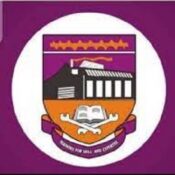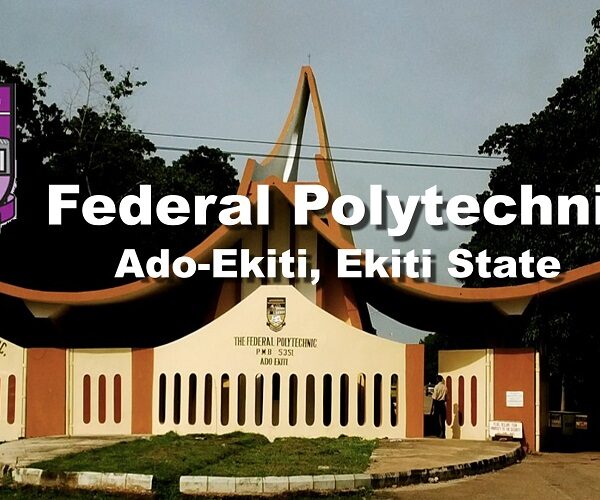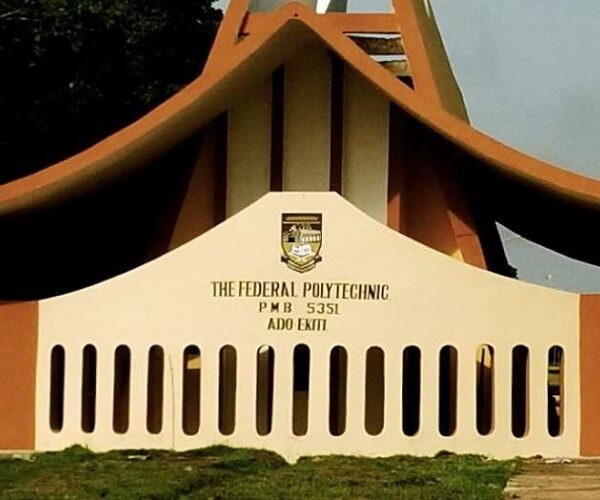- Education
- Ado - Ikare Rd, 360102, Ekiti, Nigeria

Federal Polytechnic Ado Ekiti
The Federal Polytechnic (Amendment) Act, 2019 states that the President and Commander-in-Chief shall be the Visitor to the Polytechnic. He shall conduct visitation to the Polytechnic or appoint a Visitation Panel to conduct visitations from time to time. In practice, the Visitation Panel whenever constituted, scrutinizes all the activities of the Polytechnic, especially its performance in the teaching and learning delivery system and its financial transactions.
GOVERNING COUNCIL
The Federal Polytechnic Decree No. 33 of 1979 and the amended Act 2019 vested the general management of the Polytechnic in its Governing Council. The Council has the responsibility for the general control of the Property and Finances of the Polytechnic and is empowered to enter into contracts on behalf of the Polytechnic. The Council has the responsibility of approving the Budgetary Estimates of the Polytechnic before they are forwarded to the regulatory agency, which is the National Board for Technical Education (NBTE) for further necessary actions. The Council is responsible for the Appointment of all Teaching and Non-Teaching Staff except the Rector, who is appointed by the President through the recommendation of the Honourable Minister of Education.
The Council is limited to Policy formulation and does not get involved in the day-to-day administration of the Polytechnic.
The Chairman and four members of the Council are as stipulated by the amended Act appointed by the Federal Government and served on part-time basis. Other members of Council, which is now highly democratized with more internal members, include the Rector, the Deputy Rectors, two representative of Academic Board, and three elected representatives of the congregation not below the rank of a Senior Lecturer, one of which must be a non-teaching staff; a representative of Alumni and other representations.
THE CONGREGATION
The Congregation is the general assembly of all graduate members of the Polytechnic staff, both Teaching and Non-Teaching. The Rector is its Chairman. The Congregation has the general function of serving as a Forum for discussing any Polytechnic problem or issue and has direct access to the decisions of the Council and the Academic Board.
THE CONVOCATION
The Convocation is the body comprising all the Graduate Members of Staff as well as the Alumni of the Polytechnic. Like the Congregation, the Chairman of Convocation is the Rector. It has the power to award Diplomas, prizes and confer Fellowship on eminent persons considered eligible for such honour.
OTHER PRINCIPAL OFFICERS OF THE POLYTECHNIC
There are five other Principal Officers. They include the two Deputy Rectors, (Academic) as well as (Administration), who are appointed to assist the Rector in the performance of the responsibilities as may be outlined and delegated to them by the Rector from time to time.
There is also the Registrar, whose duties include assisting the Rector in the day-to-day Administration of the Polytechnic. Apart from keeping Records of all Staff and Students, the Registrar performs such other duties from time to time as the Rector may require her to undertake. The Registrar is also the Secretary to the Governing Council, the Academic Board and any Committee of the Council and the Board. As the Chief Administrative advisor to the Rector, the Registrar operates through smaller Registry Units under the overall supervision of the Office for the effective delivery of her functions.
The Bursar as the Chief Financial Advisor assists the Rector in the Management of the Finances of the Polytechnic. The Bursary Department is also sub-divided into smaller Units for Administrative convenience in the performance of its tasks as the Custodian of all the Financial Records of the Institution.
The Polytechnic Librarian is responsible to the Rector for the administration of the Library Facilities and Resources of the Institution. He is the head of the Library Department now known as the Polytechnic Digital Library, which also operates through some smaller Units for convenience.
TENURE OF PRINCIPAL OFFICERS
The Federal Polytechnics Act (Amendment) Cap F19 of 2019 has altered the status of the appointment of four Principal Officers to a single term of 5 years.
The resultant effect is that the Duty Posts are now held on single Tenure Basis. The Rector and three other Principal Officers – Registrar, Bursar and Polytechnic Librarian hold Office for a single term of 5 years each, while the Deputy Rectors are now appointed for a single term of 4 years only. The Deans of School and the Heads of Department hold offices on a term of 3 years each not immediately renewable.
In line with the provision of the law and in consonance with Section 3, Sub-section 6 of the Federal Polytechnics (Amendment) Act 2019, the Polytechnic has established a Management Committee made up of Principal Officers, Deans of School as well as Directors of Centres and Administrative Divisions. Like the Academic Board, the Rector is the Chairman of the Management Committee, which meets from time to time to advise the Rector in the performance of the Office. The Committee assists the Rector on Management issues and takes definite decisions in the overall interest of Staff and the Institutions.
PHILOSOPHY OF THE FEDERAL POLYTECHNIC, ADO-EKITI
It is noted that there is no official guiding philosophy but there are Mission and Vision Statements for the Federal Polytechnics. The absence of a philosophy may be due to the fact that there was no prior Commission to study the need for Polytechnics and then articulate the guiding philosophy. However, the following are the Mission and Vision statements of the Polytechnic.
MISSION
To train and develop self-reliant manpower for the Sustainable technological development of Nigeria
VISION
A technological institution disseminating qualitative and Practical knowledge for meaningful contribution to local And national technological development
NATIONAL MISSION FOR POLYTECHNIC EDUCATION IN NIGERIA
The mission of Polytechnic Education is to produce knowledgeable and innovative graduates, worthy in character and public service for the technological advancement of the country.
GENERAL OBJECTIVE
To provide technical and practical-oriented training to meet the manpower requirements for the Industrial, Agricultural, Commercial, and Economic Development of Nigeria.
SPECIFIC OBJECTIVES
To provide full-time and part-time courses of instruction and training to students in Technology, Applied Science, Commerce, Management, and other fields of applied learning relevant to the needs of the development of Nigeria.
To conduct research and provide consultancy services in the fields listed above, among others.
To organize conferences, seminars, and workshops where the results of research activities are disseminated.
ACCOUNTANCY
- Agricultural engineering/technology
- Agricultural technology
- Architectural technology
- Banking and Finance
- Building Technology
- Business administration & management
- Civil engineering technology
- Computer science
- Electrical/electronic engineering technology
- Estate management and valuation
- Fisheries technology
- Food technology
- Glass/ceramics technology
- Marketing
- Mechanical engineering technology
- Mineral and petroleum resources engineering technology
- Office technology and management
- Purchasing and supply
- Quantity surveying
- Science laboratory technology
- Statistics
- Surveying and geo-informatics
- Urban and regional planning
Business Amenities
- Car Parking
- Funding: Federal
Tags
Contact Information
Opening Hours
Contact Business
Contact Business
Additional Information
Additional info







